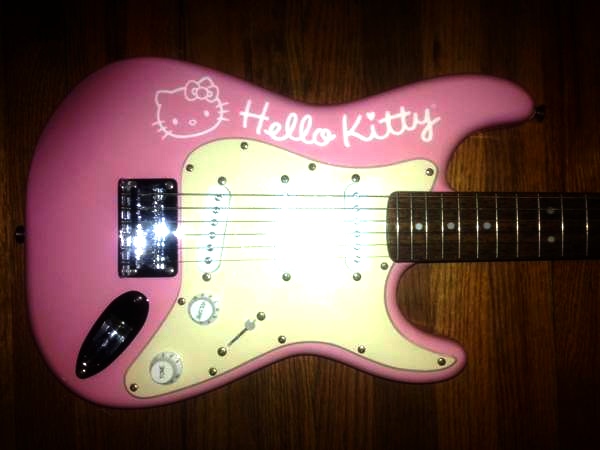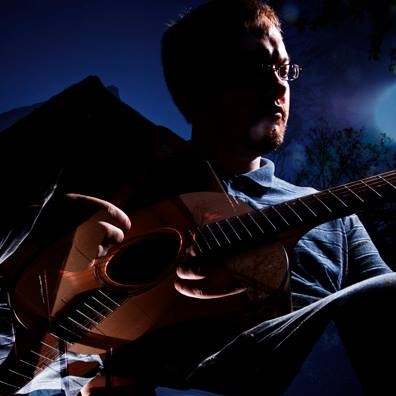Home › Forums › Other Topics › Piano vs Guitar
- This topic has 5 replies, 5 voices, and was last updated 7 years, 1 month ago by
 superblonde.
superblonde.
-
AuthorPosts
-
-
August 7, 2016 at 4:23 pm #17368
Anonymous
InactiveAnyone here play piano? I am interested in people’s opinions on the two and what makes one more difficult or easier than the other. I played guitar for years, but ever since I bought a digital piano, I feel my guitar playing improved a lot. That sounds a bit odd, but I think it was one of the most important musical decisions I have ever made.
I feel that transposing chords on the piano is a hell of a lot harder on piano than guitar. I usually felt that learning chords and scales on the guitar was hard, but trying to memorize them on the piano is a lot more difficult. Anyone have similar experiences?
By the way it has been many years since I posted on the Metal Method forum, and I thought I would hop back on to see how things are going! Bought the complete basic course back in 2007 lol!
-
August 7, 2016 at 4:24 pm #17370
 Doug MarksKeymaster
Doug MarksKeymasterI played piano as a child but forgot everything that I learned way back then. So, I’m not much help. I do think that it would be incredibly handy to have an understanding of the piano keyboard for midi input. Mostly, I just wanted to say, welcome back. Thanks for posting.
Metal Method Guitar Instructor
-
August 7, 2016 at 10:31 pm #17374
 IgglepudParticipant
IgglepudParticipantI’m learning to play piano. What I’ve found is that there are shapes on the piano just like on guitar, but there are a lot more of them. Learning the chords and scales is basically the same process, you just have so many more of them to work on. I made a diagram one night of all the chord shapes in relation to C (white skip white skip white) and put them all in groups. I came up with 12 shapes for piano vs 6 for guitar (3 if you play everything barred all the time). That was also only using 3 note chords and standard Major/Minors. No augmented diminished sus anything, let alone inversions.
I think scales are easier on piano. Once you know the notes, you just play those notes and don’t play outside the scale. If there are sharps or flats, you still play the C scale (only the white keys) but replace a few keys with black ones. Basically, you just need to know how many sharps or flats there are. Conceptually, that is easier on my mind.
Hand coordination takes practice. Playing two different rhythms can be a challenge. So I usually play the same chord with both hands but arpeggiate the right (again, strictly three note chords) to make a lead.
I find keeping things pentatonic also helps.
MY ROCK IS FIERCE!!!
-
March 21, 2017 at 11:24 pm #20884
 superblondeKeymaster
superblondeKeymasterI have just started learning piano (keyboard) this month. It should speed up my vocal practice a lot, it takes me forever to transcribe a vocal part. Geez, piano is soo easy compared to guitar. I can play the common major and minor chords already and the C minor pentatonic scale at an okay tempo across 3 octaves. I can play 12 bar blues progression already and derive chords on paper based on counting 1 3 5 or etc. I’m playing with two hands already simultaneously (slowly). Let’s compare to guitar.. 4 weeks to learn the open F chord and even then not very good at playing it at any speed other than snail’s pace? I’m still no good at playing an open-G chord after playing it in songs for over a year? Whew, there’s no comparison. Previously I played keyboard at maybe age 4 or so, kindergarten age, but I think only for 6 mos or so. (Also I’ll throw out there, if the keyboard instructor had given me 12 bar blues or Jerry Lee Lewis it probably would have gotten me immediately interested, rather than, ugh, amazing grace, etc.)
I guess just the mechanical action of the guitar just really separates it from piano. The piano doesn’t have a pick, to limit playing speed.. but unfortunately the piano cant bend notes and I wanna benddddddd.. hah. (Need a MIDI keyboard with a pitch bend wheel)
I felt much better about playing the other day after watching a very good piano lesson video on youtube and the guy said, he had started with and played western classical on piano for years growing up, including all thruout high school, and didn’t really understand anything about music, until he finally tried to play something in jazz which had chord notations i.e. typical fake book entire-song-on-a-1-page-sheet “and thats all” and so he had to figure out “what” he was supposed to play “rather than just read and play the series of notes on the page which never had any particular meaning or connection to each other”. He kind of blamed his deficiency on the way western classical piano is taught, no chords just notes, no real indication of where the music is going or what the purpose of the piece is. So yeah, maybe even very proficient piano players run into the trouble of musicking eventually..
I'm an intermediate student of Metal Method. I play seitannic heavy metal. All Kale Seitan! ♯ ♮ ♭ ø ° Δ ♩ ♪ ♫ ♬
And on the Seventh Day, Mustaine said: ∇ ⨯ E = - ∂B / ∂t ; and there was Thrash; and it had a ♭3; and it was good. -
March 22, 2017 at 8:24 am #20887
safetyblitz
ParticipantI think scales are easier on piano. Once you know the notes, you just play those notes and don’t play outside the scale. If there are sharps or flats, you still play the C scale (only the white keys) but replace a few keys with black ones. Basically, you just need to know how many sharps or flats there are.
I only played piano for a couple of years as a tween, but reflecting on it now, I think that while it is easier to identify which notes are *in* any given key on piano, it’s harder to stay aware of where the chord tones are for a given key. On guitar, you can re-use fretboard shapes for any key, and the locations of the chord tones within the shapes will stay consistent for a given mode in any key. Since lots of popular guitar music relies mainly on natural minor (or pentatonic minor), you can get a lot of mileage (e.g. chord tone positions for every key of natural minor) out of learning just one set of chord tone mappings to the diatonic layout on the fretboard.
Though on piano, even if you haven’t memorized chord tone locations, if you are playing slowly enough you can probably piece them together more quickly from knowing the scale than a guitar player who hasn’t memorized his chord tone locations could. Ad-hoc identification based on counting scale degrees is surely faster on piano, in part because you don’t have patterns and interval distances obscured by transitions from string to string the way a guitar player does.
-
March 22, 2017 at 10:56 pm #20908
 superblondeKeymaster
superblondeKeymasterSlow arpeggios are easier on guitar, just fret a chord and hit individual strings, at 60 bpm it still should be easy to reach for beginners, the funny thing, except for spanish style classical guitar lessons (acoustic guitar), no guitar lessons really start out with this as lesson material right?
On keyboard playing different scales (other than C major scale), I end up counting math a lot in my head (1 b3 5 6 b7 8). Altho that’s also the way the piano lessons are geared. Counting scale degree or even note names is very rare in guitar lessons.. almost like no one wants to know. I had a couple local guitar instructors tell me that too, “its great you want to learn with a theory based approach because no one asks for that, ever” (unfortunately they couldnt deliver the goods).
I'm an intermediate student of Metal Method. I play seitannic heavy metal. All Kale Seitan! ♯ ♮ ♭ ø ° Δ ♩ ♪ ♫ ♬
And on the Seventh Day, Mustaine said: ∇ ⨯ E = - ∂B / ∂t ; and there was Thrash; and it had a ♭3; and it was good.
-
-
AuthorPosts
- You must be logged in to reply to this topic.
